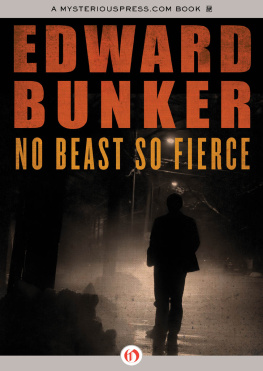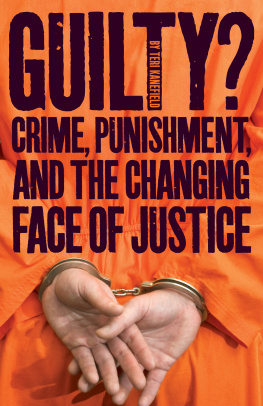On the Parole Board
Frederic G. Reamer
On the Parole Board
Reflections on Crime, Punishment, Redemption, and Justice
Columbia University Press
New York

Columbia University Press
Publishers Since 1893
New York Chichester, West Sussex
cup.columbia.edu
Copyright 2017 Columbia University Press
All rights reserved
Library of Congress Cataloging-in-Publication Data
Names: Reamer, Frederic G., 1953 author.
Title: On the parole board : reflections on crime, punishment, redemption, and justice / Frederic G. Reamer.
Description: New York : Columbia University Press, 2016. | Includes bibliographical references.
Identifiers: LCCN 2016008167 | ISBN 9780231177320 (cloth : alk. paper) | ISBN 9780231177337 (pbk. : alk. paper) | ISBN 9780231543323 (e-book)
Subjects: LCSH: Parole. | Punishment. | Retribution. | Justice.
Classification: LCC HV9278 .R394 2016 | DDC 364.6/206dc23
LC record available at https://lccn.loc.gov/2016008167
Cover design: Jordan Wannemacher
Cover image: Halfdark / Getty
For Deborah, Emma, and Leah
Contents
I have spent much of my life trying to understand crime. My curiosity began when I was six years old. My mother had just died. Soon after, my father began a ritual of escorting me and my nine-year-old brother to the childrens section of the Pimlico Branch of the Enoch Pratt Free Library in Baltimore. My brother was becoming quite the bookworm; I was along for the ride.
While my father and brother consulted with a librarian and selected books, I made a habit of surveying book spines on the shelves with no rhyme or reason. I scanned the lower shelves and pulled off books that were within reach of my short arms and whose jackets caught my eye.
I remember the moment vividly, even decades later. During one of our visits I selected a book that had a photo of a prison cell on the jacket. Inside were lots of photos that mesmerized me: inmate reclining on bunk in cell; inmate in the prison yard lifting weights; inmates in handcuffs and leg chains being processed upon admission to the prison to begin serving their sentence; inmates lined up in the food line; the gas chamber.
Week after week, when we visited the library, I headed straight for that book. I sat on the floor cross-legged and stared at the photos. The commentary adjacent to the photos meant nothing to me; I could barely read. I was transfixed by the images. Why were these men in cages? What did they do that was so bad? Why did they do such bad things? How long do they have to stay there? Whats it like to be in prison? My questions were endless, as was my fascination.
To this day I retain both. I served on the Rhode Island Parole Board from 1992 to 2016, nearly a quarter century. I spent years wending my way through the states prisons, known as High Security, Maximum Security, Medium Security, Minimum Security, Womens, and the Intake Service Center. I have not lost my fascination with the sights and sounds of these astonishingly unnatural, grim, sometimes brutal worlds. I have lost none of my curiosity about why criminals do what they do to land in prison, some for decades, some for life.
During my many years on the Rhode Island Parole Board, I wrestled hard with complicated and daunting questions about the causes of crime, the nature of goodness and evil, the impact of crime on victims, the role of punishment and retribution, the possibilities of redemption and hope, and, especially, justice.
And my work in prisons has affected me in a deeply personal way. This book is not mere intellectual exercise. Beyond the implications of my efforts to sort out the thorny academic and conceptual issues concerning crime and justice, working in prisons has shaped the way I think about my own life. My meetings with inmates and victims have been a mirror for me in so many important ways. Often I try to imagine myself in their shoes. As I sat with sobbing crime victims in anguish as a result of having been assaulted, robbed, scammed, molested, or otherwise violated, I imagined what it must be like to walk through life coping with such horrific trauma. As I sat with inmates in a hearing room a handful of steps away from inmates cells, I tried to imagine what it must be like to wake up each morning on a rigid schedule of someone elses choosing, share a cell with an inmate who is hostile and threatening, try to block out the pervasive and intrusive sounds of clanging metal doors and strident voices, eat prison food that no one would describe as appealing to the gastronomic senses, cope with the unending monotony of so many prison days, worry about the ever-present risk of assaults and harassment, lie awake at night in my bunk in agony as I think about the slow tick-tick-tick of the clock moving toward the end of my sentence, cry intensely at the end of a visit with my wife and children as they walk through the opened steel door that leads them back to the prisons main exit, and ruminate obsessively about what the hell has become of my life.
Without fail, in my own nod toward mindfulness, at the end of each parole board hearing day, I walked out the front gate reflecting on the remarkable and glorious fact that I was free. If I chose, I could stop for coffee on the way home or pick up a handful of items at the supermarket. I could stroll with my wife down the bucolic boulevard near our home. I could exercise in the basement of my home in private while listening to National Public Radio. I could open up my refrigerator, grab a piece of fruit, turn on my laptop, and conduct an Internet search for the fascinating history of noble Christians who risked their lives to save Jews during the Holocaust. I could do all this simply because I wanted to. No one would tell me not to or that I need to do something else. My life is my own.
Working in prisons for decades helped me to appreciate freedomoften from moment to moment. What might strike most people as remarkably mundane, routine daily tasks are, for me, compelling reasons to celebrate. On a daily basis I saw how all this could disappear in a flash. One bad momentdriving a car while drunk and slamming into a van filled with kids who are killed on impact, getting into a no-one-saw-this-coming fight and stabbing a fellow bar patron, soliciting a minor for sex, hitting the send button on the computer just once to transfer electronic funds without authorization to cover a large gambling debtcan destroy what would otherwise be a nice life and lead to a five-, ten-, fifteen-year, or life sentence in prison.
This book contains my reflections on these compelling issues, from abstruse puzzles related to crime and justice to the much more personal impact of my work in prisons. I do not claim to have firm and final answers to the enduring questions I raise. In fact, at this stage of my career, I seem to have more questions than answers.
But I know this: Anyone whose job is to decide the fate of prison inmates had better wrestle with these questions, even if we lack certain answers. If we fail to grapple with these relentlessly complex issues, we run the very real risk of becoming arrogant and complacent in the face of decisions that have stunning consequences for both inmates and the public at large.
Few people have the opportunity to see the inside of prisons. Even fewer are charged with the formidable responsibility of deciding whether inmates should be released. In this book I do my best to take you inside this hidden and mysterious world.
Here are my thoughts.
This book includes many examples, including case descriptions, dialogues from parole hearings, police reports, and background reports on inmates. With the exception of the excerpts from the letters of Dave Sempsrott and from newspapers, all are re-creations that use pseudonyms but are based on actual interviews with inmates, victims, and third parties as well as real inmate files and police reports. I have disguised identifying information throughout to protect individuals privacy, with the exception of information that is a matter of public record or for which I received informed consent to share identifying details.
Next page

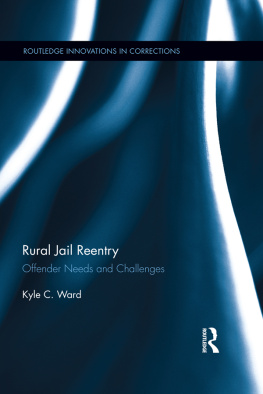
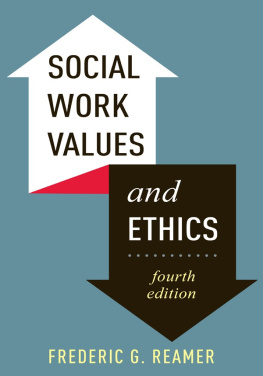
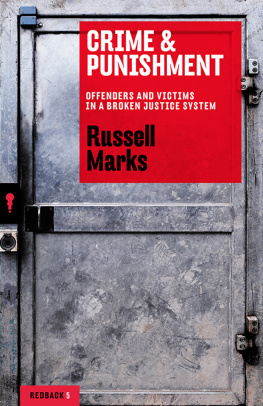
![Laura L. Finley - Crime and Punishment in America: An Encyclopedia of Trends and Controversies in the Justice System [2 Volumes]](/uploads/posts/book/305562/thumbs/laura-l-finley-crime-and-punishment-in-america.jpg)
